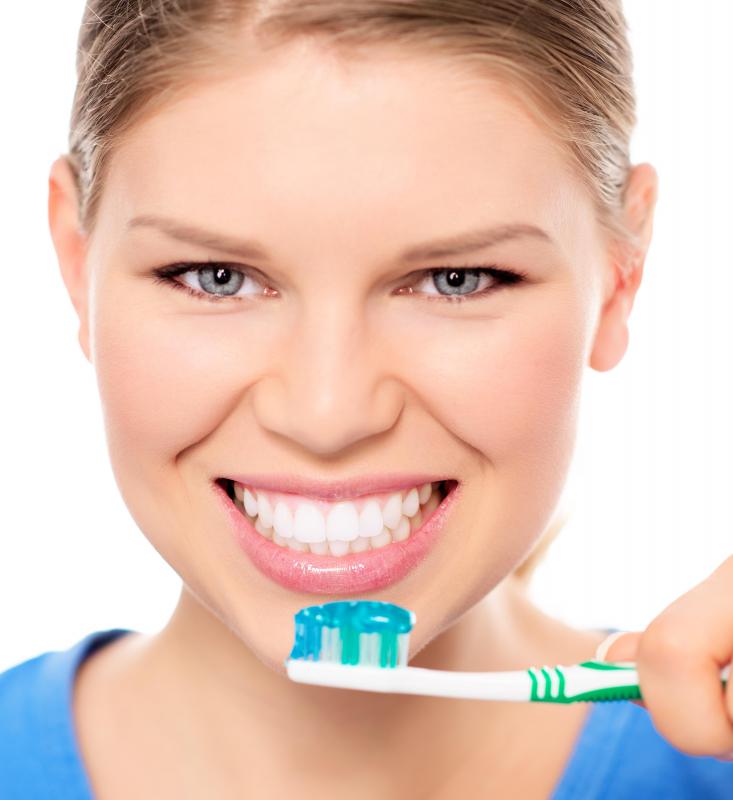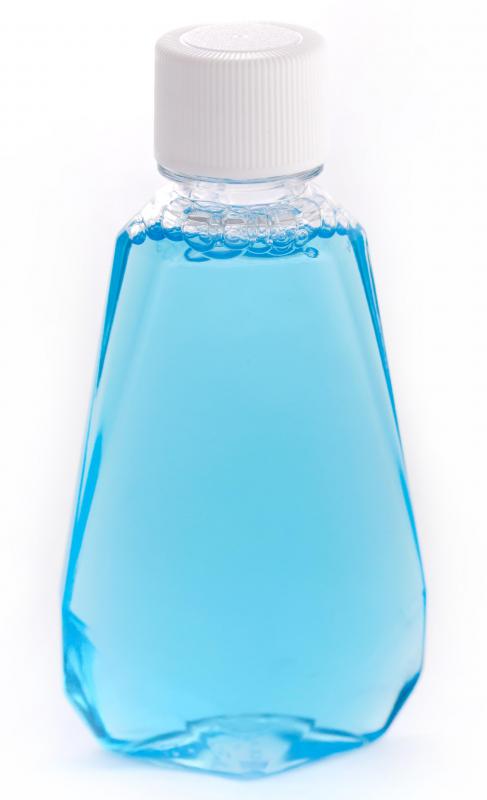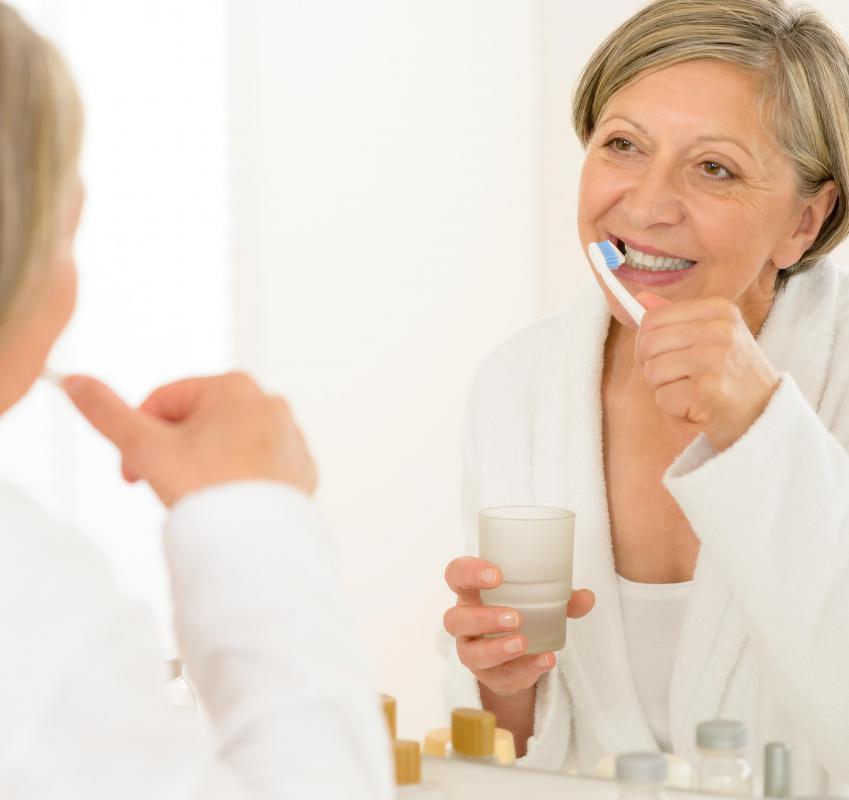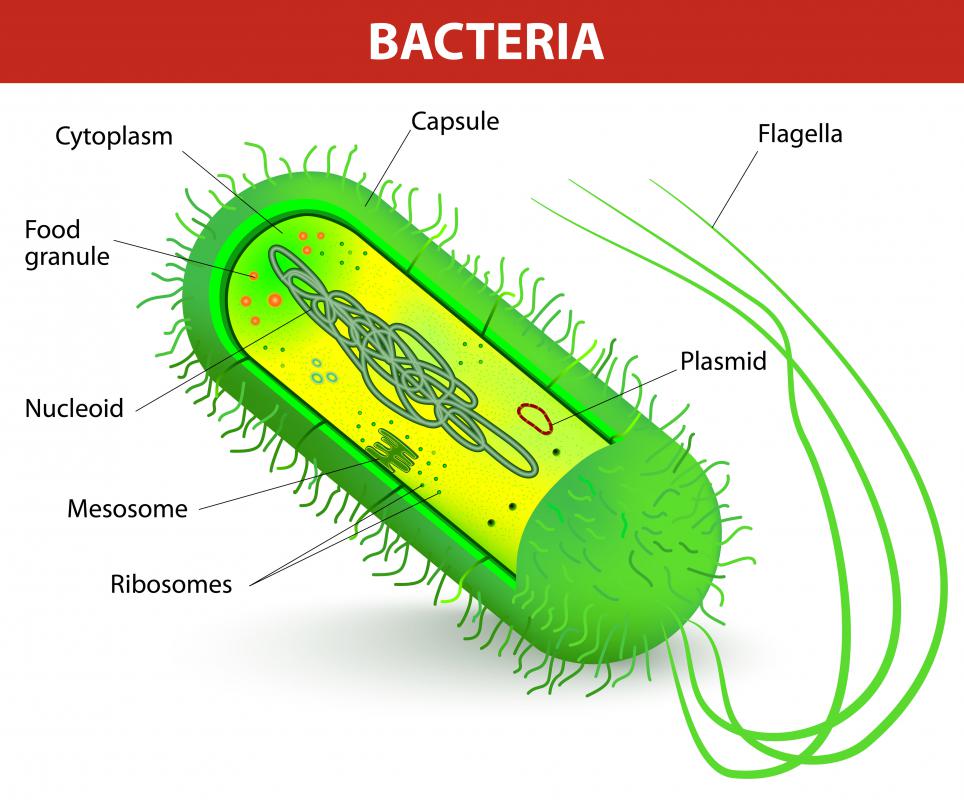At TheHealthBoard, we're committed to delivering accurate, trustworthy information. Our expert-authored content is rigorously fact-checked and sourced from credible authorities. Discover how we uphold the highest standards in providing you with reliable knowledge.
What Is Chlorhexidine?
Chlorhexidine, also known as chlorhexidine gluconate or CHG, is a chemical substance with antimicrobial properties that is able to both kill and inhibit the growth of microorganisms such as viruses, fungi, and bacteria. This substance is used in various products as an antiseptic, meaning it is applied to skin, and other tissue like mucous membranes to avoid or fight infection. For example, chlorhexidine is used in both human and veterinary medicine as a disinfectant in pre-surgery hand scrubs, to clean wounds, and to swab skin before the use of syringes or other needles. It is also used in topical acne treatments, as an over-the-counter wound wash, and in both prescription and over-the-counter mouth rinses to help fight gum disease. In general, chlorhexidine does not cause serious side effects but it can stain teeth when used as a mouth rinse and can cause irritation when used on the skin; it is also not recommended to apply this substance to the ears or eyes without medical supervision.
Different kinds of antiseptics work in different ways to kill microorganisms and prevent them from multiplying. Chlorhexidine is a chemical antiseptic that works by membrane disruption, meaning it is absorbed by the cell membranes of microorganisms such as viruses and bacteria, causing the membranes to leak and killing the organisms. It is effective against both major categories of bacteria — gram-positive bacteria and gram-negative bacteria — and studies show bacteria do not become resistant to it even after prolonged use. One disadvantage of chlorhexidine is that its effectiveness can be reduced by the presence of blood, pus, or soap.

A common use of chlorhexidine is as an ingredient in oral rinses to treat mouth infections, reduce plaque buildup on teeth, and treat and prevent gum disease, also known as gingivitis. The substance is proven to reduce the presence of bacteria in the mouth, but prolonged use can cause staining of tooth enamel. Its antibacterial effects can also be neutralized by some toothpaste ingredients, and it is recommended to not brush one's teeth 30 minutes to two hours before or after using these oral rinses.

Chlorhexidine is proven to promote wound healing and prevent infection when used topically, meaning on the surface of the skin. It is often used to disinfect skin before surgery and other medical procedures, such as the insertion of intravenous needles and for drawing blood for blood samples. In some cases, it can cause serious skin irritation, hives, itching, and difficulty breathing. One should seek medical assistance if experiencing these symptoms.
AS FEATURED ON:
AS FEATURED ON:

















Discussion Comments
I know from my dad's farm that chlorhexidine solution is used often while caring for animals. My dad will use it to clean cows and some of the other animals to prevent infections.
@fify-- I've used chlorhexidine mouthwash several times in the past after dental procedures. I don't think it's dangerous unless you really swallow some.
I don't rinse my mouth with water after I use it, it's not meant to be used that way. As long as you spit out all the excess, it should be fine.
Don't worry about it.
I heard that accidentally swallowing chlorhexidine is very dangerous and it can even cause anaphylactic shock.
Is this true?
My dentist prescribed chlorhexidine mouthwash for me a few days ago. I have been using it without problems but after I gargle with it, I don't rinse my mouth. Should I be rinsing afterward? Will the little amount of mouthwash left in my mouth harm me?
Post your comments